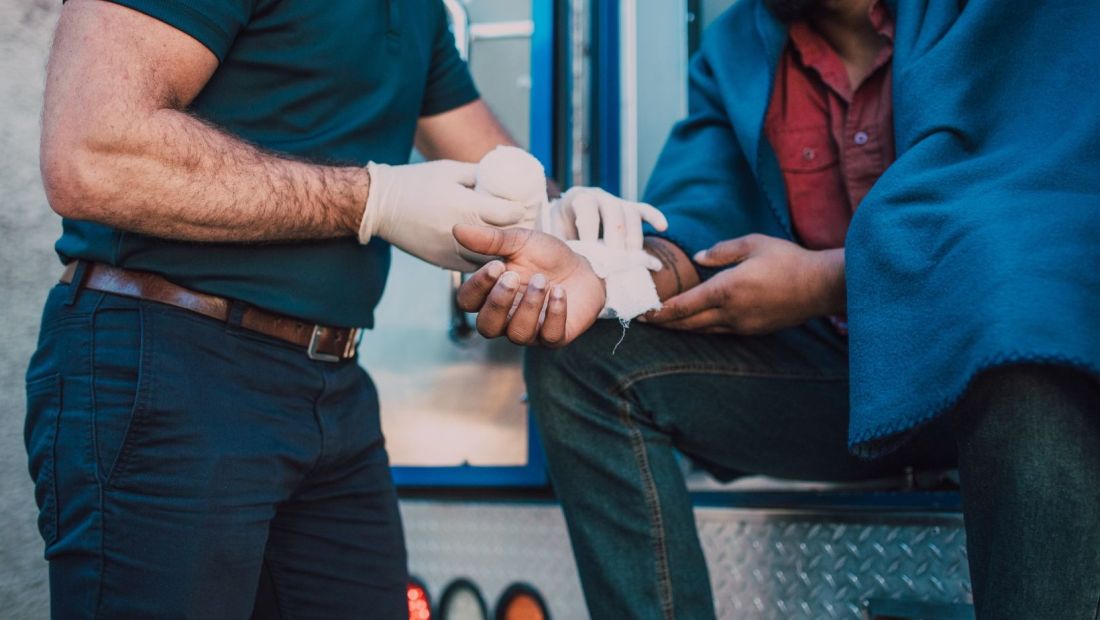Call Us Now
202-463-3030
Schedule a Free Consultation
Personal Injury Protection (PIP) coverage helps DC drivers pay medical bills and lost wages after a crash, but these benefits can run out quickly, especially when serious or long-term injuries are involved. That’s where Regan Zambri Long’s Washington, DC car accident lawyers can help. For almost 30 years, our award-winning attorneys have guided victims through DC’s no-fault insurance system, ensuring they receive the full compensation available under the law.
Our board-certified lawyers help clients navigate the PIP process, challenge delays or denials, and determine when injuries meet the legal threshold to pursue additional compensation beyond basic coverage. We coordinate health and auto insurance claims to avoid payment gaps and build the medical record needed to support a potential liability claim. Our reputation is backed by over 100 5 star Google reviews from clients who trust our experience and knowledge.
Have you struggled to get the full benefits from your PIP coverage after a Washington, DC car accident? Contact Regan Zambri Long today, and one of our attorneys will call you back personally. We’re available 24/7, and we front all costs, so there’s no fee unless we win your case.
Complete this form and our team will get back to you as soon as possible







In “at-fault” insurance states, the injury victim can file a claim with the at-fault driver’s insurance to pay for any related costs. But in a “no-fault” insurance state (or jurisdiction, like Washington, DC), things work a little differently. Instead, the injury victim must rely on their car insurance to pay for medical costs, lost wages, and property damage. This is where PIP coverage comes into play.
MILLION
Wrongful Death Settlement
MILLION
MILLION
Wrongful Death Verdict
MILLION
Premises Liability Settlement
MILLION
Wrongful Death Settlement
MILLION
Wrongful Death Verdict
MILLION
Medical Malpractice Settlement
MILLION
Personal Injury Settlement
MILLION
Car Accident Settlement
Some of the key features of PIP insurance include:
The availability and specific details of PIP coverage can vary by state, as not all states require or offer PIP insurance. Some states have “choice” or “tort” systems in which drivers can choose between PIP and traditional liability insurance.
In Washington, DC, the average PIP claim is $7,901, which highlights how even moderate injuries can quickly use up a large portion of available benefits. Reviewing your coverage limits carefully ensures that your policy offers adequate protection in case of a serious crash.
It’s important to review your auto insurance policy and understand the PIP coverage limits and options available to you, as well as the requirements in your state, to ensure you have the appropriate level of protection in case of an accident.

PIP is optional in Washington, DC. Car insurance companies in these areas generally have higher car insurance rates because of this additional personal injury protection coverage. For example, the average annual cost of minimum coverage in DC is $888, which is substantially above the national average of just under $700.
Personal injury protection rules and regulations vary around the nation. Some of the specifics regarding how PIP works in DC include:
While PIP offers a great deal of protection, there are events in which the damage caused in an accident may exceed the coverage of a driver’s PIP. For instance, if you’re in an accident that results in hundreds of thousands of dollars in medical bills, but your PIP is less than that, are you stuck paying the rest of your expenses out of pocket?
The answer depends on the details of your claim. PIP generally protects drivers who cause accidents and can be somewhat unfair to victims. However, you do potentially have the option to file a lawsuit against the at-fault driver, provided at least one of the following is applicable:
If you have any questions about whether you can file a lawsuit for your accident, don’t hesitate to contact our DC car accident lawyers for more information.
When you choose Regan Zambri Long as your car accident lawyers, you’re choosing one of Washington, DC’s most accomplished personal injury law firms. With almost 200 years of combined experience and over $1 billion in settlements and verdicts for personal injury victims, our attorneys have built a legacy of results through dedication, preparation, and compassion. Every case we take on reflects our mission to protect victims and families facing life-changing losses.
Our firm’s partners enjoy a reputation for excellence across the DC legal community. Senior partner Salvatore Zambri has been named among Washington, DC’s Top 10 Super Lawyers, while fellow senior partner Patrick Regan and partner Paul Cornoni join him among the Top 100 Super Lawyers out of the city’s 80,000 lawyers. Senior partner Victor Long was recently appointed to serve as Chair of the DC Court of Appeals Client Security Trust Fund, which safeguards client trust funds and oversees restitution for victims of attorney misconduct.
Salvatore Zambri has also been named to Washingtonian Magazine’s Top Lawyers Lifetime Achievement Honor Roll, where he was described as “a Big Gun” and one of “Washington’s best — most honest and effective — lawyers.” The magazine likewise called Patrick Regan “a personal injury lawyer who could be a poster boy for legal ethics and integrity,” and “one of the most successful advocates for clients in negligence.”
Beyond Washington, our partners and attorneys have earned national recognition. All six partners have been named to Lawdragon’s annual list of the 500 Leading Plaintiff Consumer Lawyers in the United States, and all are featured in Best Lawyers’ list of the Best Lawyers in America, with three partners named Lawyer of the Year for their practice areas.
PIP coverage offers an important safety net, but it isn’t always enough after a serious crash. If your medical costs or losses exceed your policy limits, our car accident lawyers can help determine whether you qualify to file a lawsuit and recover full compensation under DC law. Contact Regan Zambri Long today for a free consultation.
Have you or your loved one sustained injuries in Washington DC, Maryland or Virginia? Regan Zambri Long PLLC has the best lawyers in the country to analyze your case and answer the questions you may have.